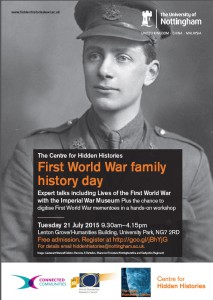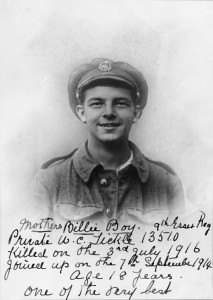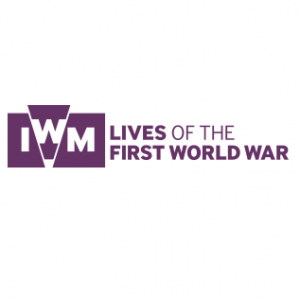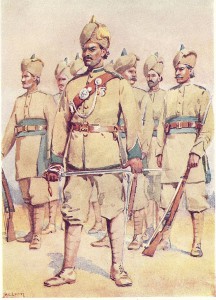 It’s a familiar tale — an ancient family album filled with black and white photographs, yellowed and dog-eared with age, the faces of young men and women in uniform gazing proudly from the pages.
It’s a familiar tale — an ancient family album filled with black and white photographs, yellowed and dog-eared with age, the faces of young men and women in uniform gazing proudly from the pages.
The problem is the only people who knew them in life have long since passed away, often taking the many stories of these brave ancestors to their grave.
Now, The University of Nottingham is to offer a helping hand to people interested in finding out more about the part their family may have played in the First World War at a free community open day later this month.
Hidden Histories — First World War Family History Day will take place on University Park campus on Tuesday July 21 and will feature a range of speakers who will share their expertise and offer beginners tips and advice on how to make the best start in researching their past.
Keynote speakers for the day include:
- A representative from the Imperial War Museum who will talk about the museum’s Lives of the First World War — an online resource which offers the opportunity to commemorate service men and women through a mix of official records, photographs and personal testaments
- Anne-Marie Kramer, a lecturer in The University of Nottingham’s School of Sociology and Social Policy, who will speak about the development and use of family history
- Professor Kurt Barling who will offer insight into the Middlesex Family History Project, which is seeking family stories and photographs of those who served in the Middlesex Regiment from their descendants
- East Midlands Oral History Archive, which has been gathering oral histories of the home front in Leicestershire and Rutland during the First World War
- Nottinghamshire Archives, home to the World War I: Nottinghamshire Memorials Project, a resource commemorating local soldiers who fought and died in ‘Flanders Fields’.
The event will also feature exhibitions from the University’s Manuscripts and Special Collections department and Laxton History Project.
The Hidden Histories — First World War Family History Day takes place on Tuesday July 21 from 9.30am to 4.30pm in the Department of History, Lenton Grove and the Digital Humanities Centre on University Park Campus. A buffet lunch is included in the day.
The event is completely free but it is essential that those interested in attending register online beforehand.
 Recent years have seen a revolution in family history and amateur genealogy. The possibilities created by broadband internet, the digitisation of official and parish records and the advent of crowdsourcing have created an unprecedented boom in the pursuit of private histories. The popularity of programmes such as Who Do You Think You Are? testifies to the the mainstream success of this once esoteric hobby. It has given more people a basic grounding in historical enquiry, and has encouraged the development of skills such as research, paleography and metadata tagging. It also has led to the creation of mini-archives, comprising collections of documents, photographs, artefacts and secondary material such as family trees and published (traditionally and online) material.
Recent years have seen a revolution in family history and amateur genealogy. The possibilities created by broadband internet, the digitisation of official and parish records and the advent of crowdsourcing have created an unprecedented boom in the pursuit of private histories. The popularity of programmes such as Who Do You Think You Are? testifies to the the mainstream success of this once esoteric hobby. It has given more people a basic grounding in historical enquiry, and has encouraged the development of skills such as research, paleography and metadata tagging. It also has led to the creation of mini-archives, comprising collections of documents, photographs, artefacts and secondary material such as family trees and published (traditionally and online) material. During the course of our project we have encountered people who have undertaken such research and who have gathered documents, photographs and other artefacts. They are often older members of the household who have embarked on their project in retirement and have been motivated to do so because they have a personal memory of some of the individuals concerned, assuming a combatant birth year range of c1868-1902. As this generation ages, we will encounter a ‘succession problem’ of what to do with such collections that are too small and/or esoteric to be absorbed into mainstream collections. A related issue is the atomised nature of these items. They reside in spare rooms, on living room walls and in attics and could be hiding information useful to professional historians. These archives, a combination of documentary information and material artefacts are of intense personal value to the people who have carefully curated them. But they have other value too. They are of use to professional historians who can use them in aggregate to build a picture of the social past.
During the course of our project we have encountered people who have undertaken such research and who have gathered documents, photographs and other artefacts. They are often older members of the household who have embarked on their project in retirement and have been motivated to do so because they have a personal memory of some of the individuals concerned, assuming a combatant birth year range of c1868-1902. As this generation ages, we will encounter a ‘succession problem’ of what to do with such collections that are too small and/or esoteric to be absorbed into mainstream collections. A related issue is the atomised nature of these items. They reside in spare rooms, on living room walls and in attics and could be hiding information useful to professional historians. These archives, a combination of documentary information and material artefacts are of intense personal value to the people who have carefully curated them. But they have other value too. They are of use to professional historians who can use them in aggregate to build a picture of the social past.
 One hundred years ago, undivided India provided Britain with a massive volunteer army in its hour of need. From 1914-1918 close to 1.5 million Indians served, fighting in all the major theatres of war from Flanders Fields in Belgium to the Mesopotamian oil fields of present day Iraq. One in six of the service personnel under British command was from the Indian subcontinent. Because of this there are many connections to be made between Britain’s South Asian communities and this landmark conflict.
One hundred years ago, undivided India provided Britain with a massive volunteer army in its hour of need. From 1914-1918 close to 1.5 million Indians served, fighting in all the major theatres of war from Flanders Fields in Belgium to the Mesopotamian oil fields of present day Iraq. One in six of the service personnel under British command was from the Indian subcontinent. Because of this there are many connections to be made between Britain’s South Asian communities and this landmark conflict.